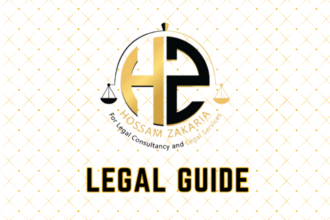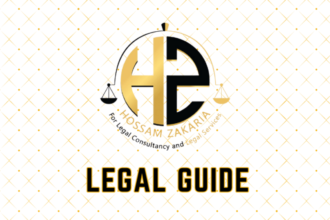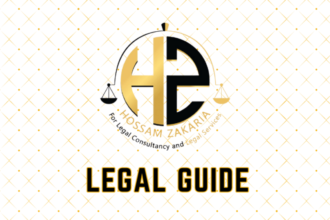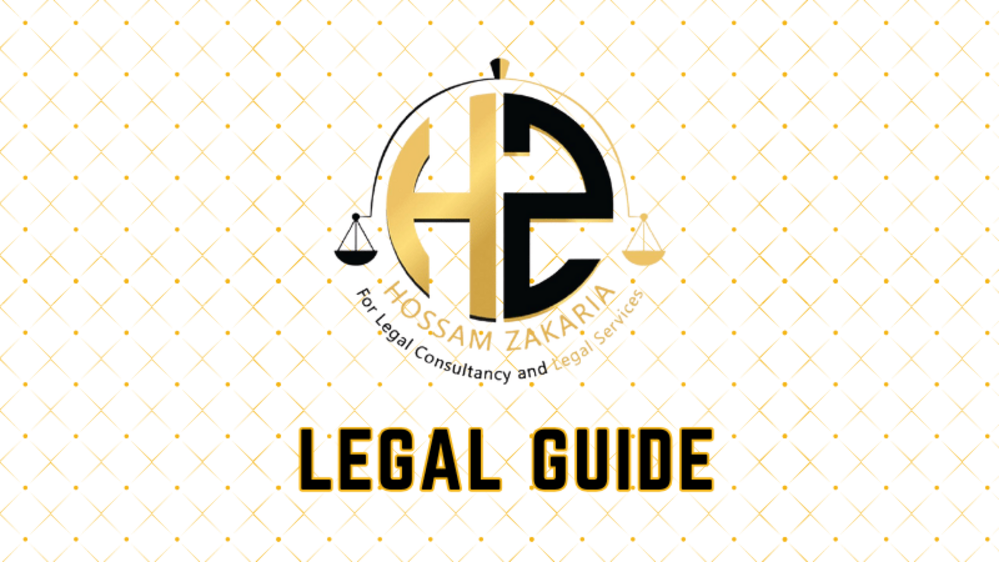Introduction: Navigating SAMA Directive Compliance in the UAE
As the UAE continues its rapid ascent as a global financial powerhouse, regulatory bodies such as the Saudi Arabian Monetary Authority (SAMA)–now commonly referred to as the Saudi Central Bank–have dramatically increased in influence across the GCC’s interconnected banking, finance, fintech, and insurance sectors. While headquartered in Riyadh, the SAMA’s directives often have ripple effects that reach UAE-based institutions operating regionally or providing cross-border services. Recent years have seen the UAE’s Central Bank and allied regulatory authorities tighten their own legal alignment, both in response to SAMA updates and in anticipation of the region’s evolving compliance landscape, particularly in light of emerging 2025 legal reforms.
Understanding and adhering to the latest SAMA directives is now critical for UAE entities that engage with Saudi markets or with customers, finance partners, or data flows that touch the Kingdom. Beyond regulatory alignment, SAMA’s increasingly sophisticated compliance expectations have made risk mitigation a board-level concern, with non-compliance carrying severe financial, reputational, and legal consequences. This article provides authoritative, practical legal guidance for UAE businesses in 2024/2025, detailing how organizations can proactively achieve SAMA directive compliance and minimize attendant risks—while leveraging recent federal legal updates and drawing on best practices established by official UAE sources such as the Central Bank of the UAE, Ministry of Justice, and the Federal Legal Gazette.
Table of Contents
- The Context: SAMA Directives and GCC Regulatory Alignment
- Overview of SAMA Directives and Core Provisions
- UAE Law 2025 Updates and Regulatory Harmonization
- Practical Impact and Compliance Risks for UAE Organizations
- Comparative Analysis: Previous vs. Current Regulation
- Mitigating Non-Compliance Risks: Best Practice Strategies
- Case Studies and Hypothetical Scenarios
- Forward Outlook: Compliance, Governance, and the UAE Legal Landscape
- Conclusion: Shaping the Future of UAE Compliance Readiness
The Context: SAMA Directives and GCC Regulatory Alignment
Understanding SAMA’s Influence in the Region
The Saudi Central Bank (previously SAMA) oversees financial regulation in Saudi Arabia and issues directives that increasingly set the compliance tone for regional players. UAE-based banks, fintechs, insurers, and service providers with operations, investments, or correspondent relationships in Saudi Arabia, or with Saudi clients, are subject either directly or indirectly to SAMA’s compliance benchmarks.
Over the past several years, SAMA directives—including those covering cybersecurity, anti-money laundering (AML), operational resilience, consumer protection, and data privacy—have rapidly grown in complexity. Given cross-border service integration, the UAE’s federal and ministerial authorities, such as the Central Bank of the UAE (CBUAE), Ministry of Finance, and Ministry of Justice, have issued updated rules and guidance to ensure harmonization with SAMA standards while maintaining the UAE’s unique legal framework.
For organizations in the UAE, this regulatory environment means they must evolve from basic compliance checklists to more sophisticated, risk-based approaches that can stand up to scrutiny under both UAE and SAMA requirements.
Overview of SAMA Directives and Core Provisions
Key SAMA Directives Impacting UAE Stakeholders
SAMA directives broadly cover:
- Cybersecurity Frameworks: Mandating controls around information security, access management, and incident response (notably the SAMA Cyber Security Framework, 2017, updated through various supplements).
- Anti-Money Laundering (AML) and Counter-Terrorist Financing (CTF): Imposing stringent KYC, transaction monitoring, and reporting protocols in line with international standards and regional FATF guidelines.
- Consumer Protection and Financial Inclusion: Rules to ensure financial products are transparent, fairly priced, and accessible. See SAMA’s Consumer Protection Principles, 2019 and subsequent updates.
- Data Privacy and Outsourcing: Requirements for data localization, third-party vendor management, and robust privacy controls.
Legal Reference Points
SAMA Cyber Security Framework (2017, as amended) sets minimum benchmarks for IT and data protection.
SAMA Anti-Money Laundering and Counter Terrorist Financing Guidelines (latest amendments, 2023) align with the Financial Action Task Force (FATF) and the UAE Central Bank’s own guidance.
Consumer Protection Principles (2019, as updated) and a suite of outsourcing, operational resilience, and corporate governance circulars.
Institutions falling under SAMA’s purview must demonstrate not only formal compliance but also operational effectiveness and regular independent review.
UAE Law 2025 Updates and Regulatory Harmonization
Recent Legislative Developments in the UAE
The UAE’s commitment to regulatory best practices is evidenced by extensive recent legal updates designed to harmonize with SAMA and other international standards.
- Federal Decree-Law No. 20 of 2018 (Anti-Money Laundering and Combating the Financing of Terrorism and Illegal Organizations): Fundamentally overhauled in recent years to reflect GCC and FATF standards.
- Central Bank of the UAE Guidelines (Circular No. 24/2022; Circular No. 6/2023): Provide detailed regulatory guidance for banks and financial institutions regarding risk management, reporting obligations, and technology controls.
- Personal Data Protection Law—Federal Decree-Law No. 45 of 2021: Introduces clear requirements for data processing, cross-border transfers, and data subject rights in a manner that aligns with SAMA’s data localization expectations.
- Cabinet Decision No. 10 of 2019 regarding the Executive Regulations of AML Law: Adds specificity on due diligence, beneficial ownership identification, and reporting frameworks.
Official Sources
The above regulations and related circulars can be accessed through the UAE Ministry of Justice, the Central Bank of the UAE, and the UAE Government Portal.
Practical Impact and Compliance Risks for UAE Organizations
Applicability of SAMA Directives to UAE Operations
While SAMA is not a UAE entity, its influence is acutely felt by Emirati organizations transacting in or with Saudi Arabia, including through:
- Subsidiaries or branches registered in KSA;
- Cross-border payments, fintech, or insurtech service offerings;
- Interbank relationships and correspondent services;
- Shared technology platforms or outsourcing arrangements affecting Saudi data subjects or systems.
Practical implications include:
- Implementing dual compliance programs that satisfy both UAE and SAMA requirements;
- Updating policies for KYC, customer due diligence (CDD), and reporting thresholds in line with both the UAE’s Anti-Money Laundering Decree and SAMA’s AML/CTF guidelines;
- Adopting advanced cybersecurity controls and third-party management that meet or exceed SAMA’s standards;
- Ensuring privacy notices, data processing agreements, and cross-border transfers comply with both Federal Decree-Law No. 45 of 2021 and SAMA outsourcing requirements.
Risks of Non-Compliance
Falling short of SAMA or UAE requirements exposes institutions to the following risks:
- Enforcement Actions: SAMA and the CBUAE are aggressively pursuing violations via audits, penalties, and—where cross-border violations are material—even regulatory cooperation mechanisms.
- Severe Fines: Multi-million-dirham penalties are increasingly common (see CBUAE enforcement news); SAMA has issued equivalent high-profile penalties.
- Reputational Damage: Publicized breaches hurt investor relations and are considered material disclosure events for listed entities.
- Operational Disruption: Non-compliance can trigger suspension of services or even business licenses impacting regional operations.
Comparative Analysis: Previous vs. Current Regulation
SAMA and UAE Law: Key Changes at a Glance (Suggested Table Visual)
| Area | Pre-2022 UAE/SAMA Approach | Post-2023/2025 UAE/SAMA Approach |
|---|---|---|
| AML & CTF | Basic KYC, periodic monitoring, limited beneficial ownership due diligence | Risk-based CDD, enhanced KYC, detailed ongoing monitoring, cross-border data sharing protocols |
| Cybersecurity | General IT policies, technology-centric controls | Mandatory frameworks (per SAMA and CBUAE), operational resilience, regular penetration tests, real-time threat intelligence |
| Consumer Protection | General requirements for transparency and fair dealing | Explicit SAMA and UAE guidelines for transparency, disclosure, and customer recourse mechanisms |
| Data Privacy | Limited restrictions, focus on sectoral laws | Full GDPR-style compliance under UAE Law No. 45/2021; alignment with SAMA data localization and consent mandates |
| Outsourcing | Limited oversight; self-certification | Mandatory third-party risk assessment, SAMA approvals, CBUAE reporting and oversight |
Visual Suggestion: Compliance Timeline graphic showing evolution of key obligations (2018–2025).
Mitigating Non-Compliance Risks: Best Practice Strategies
Legal Consultant Insights for UAE-Based Organizations
Conducting successful SAMA-aligned compliance in the UAE involves a tailored, proactive approach. Key strategies include:
- Regulatory Mapping: Regularly assess operational touchpoints where SAMA directives overlap or surpass UAE law (especially for technology, personal data, and AML).
- Gap Analysis: Commission periodic external audits to benchmark internal processes against both UAE and SAMA standards.
- Integrated Policies: Update all compliance policies—risk management, data protection, supplier onboarding—so that they harmonize with SAMA’s minimum expectations alongside UAE law.
- Board and Management Training: Run scenario-based training programs for directors/managers to ensure top-down understanding of evolving obligations.
- Vendor Due Diligence: Vet all outsourced/third-party providers for SAMA compliance readiness, documenting contracts and SLAs accordingly.
- Incident Response Planning: Develop cross-jurisdictional response workflows in anticipation of regulatory investigation or notification demands in either jurisdiction.
Compliance Checklist (Suggested Visual/Table)
| Compliance Activity | Responsible Party | Frequency | Reference Law/Directive |
|---|---|---|---|
| Conduct SAMA/UAE compliance audit | Compliance Officer | Annually | CBUAE Circulars, SAMA Cybersecurity Framework |
| Board member legal training | HR/Legal Dept | Bi-annually | UAE Companies Law, SAMA Governance Circulars |
| Third-party due diligence review | Procurement/Compliance | Every contract renewal | CBUAE Guidelines, SAMA Outsourcing Policy |
| Data privacy program review | Data Protection Officer | Annually | UAE Law No. 45/2021, SAMA Data Principles |
| AML/CTF processes test | AML Officer | Quarterly | Decree-Law No. 20/2018, SAMA AML/CTF Guidelines |
Visual Suggestion: Downloadable “2025 GCC Compliance Checklist for UAE Institutions.”
Case Studies and Hypothetical Scenarios
Case Study 1: UAE Fintech Expanding in Saudi Arabia
Scenario: Dubai-based fintech provider, registered in DIFC, planning a digital banking pilot for Saudi consumers.
- Compliance Issues: Must implement SAMA Cybersecurity Framework controls, update privacy program for Saudi data subjects, and ensure anti-fraud monitoring matches SAMA standards, while satisfying DFSA and CBUAE regulations at home.
- Consequences: Without such alignment, the company risks Saudi market exclusion, cross-border investigation, and reputational loss.
- Best Practice: Appoint joint SAMA-UAE compliance leads; commission cross-jurisdictional data risk assessment; establish a communication protocol to immediately address regulatory inquiries from either side.
Case Study 2: International Bank’s Shared Service Center in UAE
Scenario: UAE branch of a global bank provides regional support services, including handling Saudi customer complaints and financial transactions.
- Compliance Issues: SAMA’s consumer protection and complaint handling standards must be implemented at the shared service hub, and all cross-border transaction monitoring must adhere to both SAMA and CBUAE AML instructions.
- Consequences: Service disruption, administrative penalties, or forced de-localization of services if standards fall short.
- Best Practice: Dual review of all compliance documentation, direct engagement of SAMA-accredited consultants for technical audits, annual joint tabletop exercises simulating regulatory breach events.
Visual Suggestion: Process flow diagram illustrating end-to-end compliance workflow for UAE institutions serving KSA customers.
Forward Outlook: Compliance, Governance, and the UAE Legal Landscape
Trends Shaping Compliance for 2025 and Beyond
The convergence of UAE and SAMA regulatory approaches is only accelerating. Notable drivers include:
- Digital Transformation: GCC banking and insurance are increasingly digital-first, raising the stakes for both cybersecurity and privacy compliance.
- International Scrutiny: As the UAE and Saudi Arabia seek to avoid international grey-listing and sustain inflows of global capital, both are enhancing external collaboration on AML, counter-terrorism, and information sharing.
- Regulatory Technology (RegTech): Automated compliance monitoring—using AI or machine learning—will become a minimum expectation for larger entities by 2025.
- Evolving Sanctions and Trade Controls: Both states are rolling out sharper sanctions enforcement—requiring agility in vendor onboarding, payments, and supply chain risk management.
UAE organizations must not only adopt SAMA and federal requirements as static obligations, but embed adaptive compliance processes that can evolve with sectoral updates, cross-border engagements, and new fintech or insurtech product launches.
Key Steps to Stay Ahead
- Appoint designated officers for GCC compliance alignment and cross-training.
- Invest in RegTech and cross-border data management solutions.
- Schedule biannual regulatory horizon scans with trusted UAE legal consultants.
- Engage proactively with regulators (CBUAE, SAMA) to clarify ambiguous obligations.
Conclusion: Shaping the Future of UAE Compliance Readiness
Proactive alignment with SAMA directives now represents not just a best practice, but a business imperative for UAE-based organizations with regional aspirations. The impact of recent UAE legal updates—in particular, the updated Federal Decree-Laws and CBUAE circulars—has elevated compliance from a matter of basic operational hygiene to a strategic differentiator. Institutions that invest now in dual-jurisdiction governance, scenario-based training, advanced technology, and legal consultancy are well-positioned to thrive in an increasingly scrutinized GCC landscape as we approach 2025.
Engaging seasoned UAE legal consultants is essential for accurate risk mapping, regulatory interpretation, and execution of compliance programs that reflect both the letter and the spirit of the law. Organizations that adopt forward-thinking governance, continuous monitoring, and transparent regulator engagement will not only avoid enforcement risk, but help define the next chapter of the UAE’s leadership in regional compliance and business integrity.
For tailored guidance, policy drafting, or readiness audits, UAE legal consultancy firms offer the expertise and local insight to future-proof operations for SAMA and UAE regulatory success.



